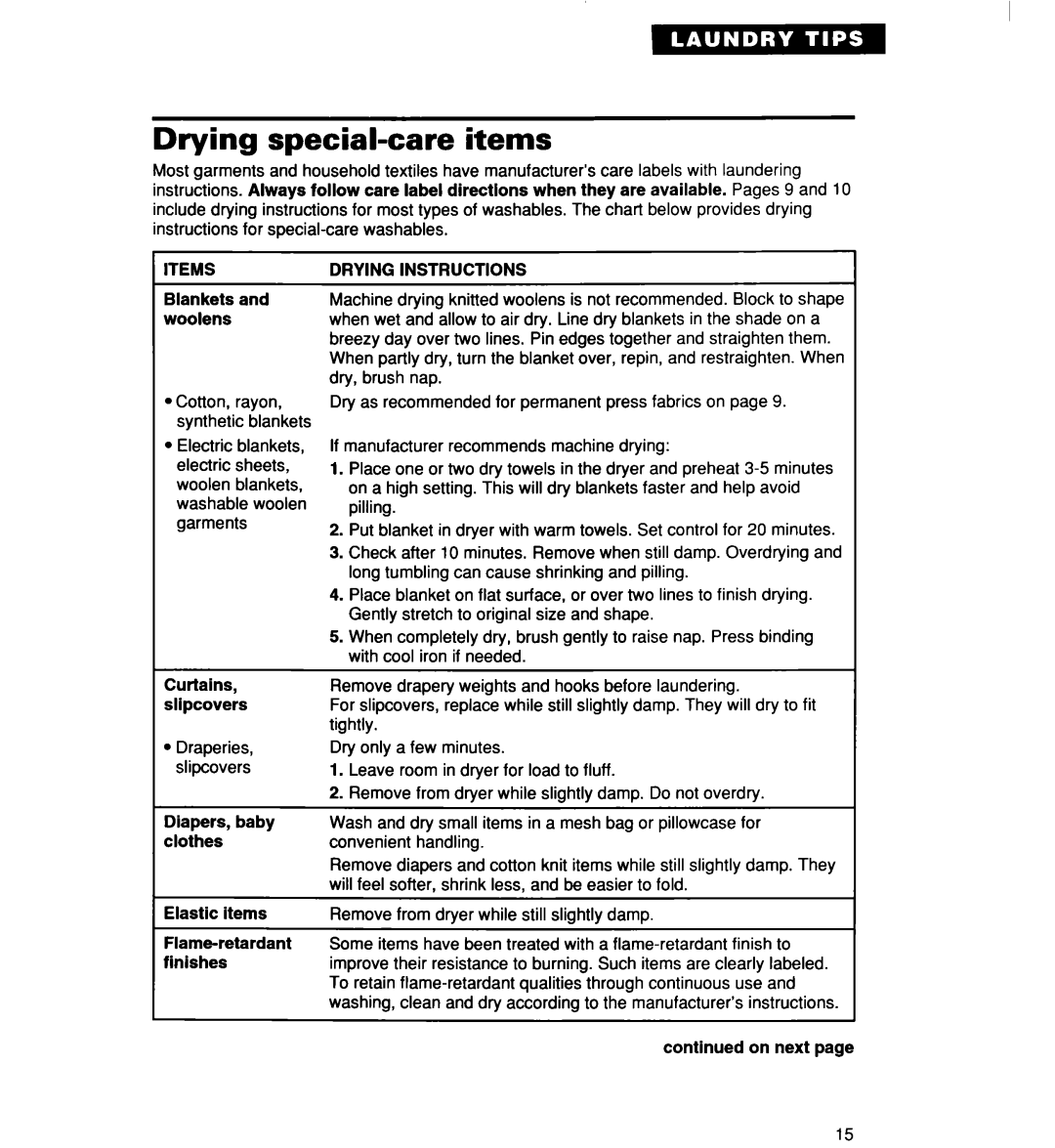
Drying special-care items
Most garments and household textiles have manufacturer’s care labels with laundering instructions. Always follow care label directions when they are available. Pages 9 and 10 include drying instructions for most types of washables. The chart below provides drying instructions for
ITEMS
Blankets and woolens
l Cotton, rayon, synthetic blankets
l Electric blankets, electric sheets, woolen blankets, washable woolen garments
Curtains, slipcovers
lDraperies, slipcovers
Diapers, baby clothes
Elastic items
DRYING INSTRUCTIONS
Machine drying knitted woolens is not recommended. Block to shape when wet and allow to air dry. Line dry blankets in the shade on a breezy day over two lines. Pin edges together and straighten them. When partly dry, turn the blanket over, repin, and restraighten. When dry, brush nap.
Dry as recommended for permanent press fabrics on page 9.
if manufacturer recommends machine drying:
1.Place one or two dry towels in the dryer and preheat
2.Put blanket in dryer with warm towels. Set control for 20 minutes.
3.Check after 10 minutes. Remove when still damp. Overdrying and long tumbling can cause shrinking and pilling.
4.Place blanket on flat surface, or over two lines to finish drying. Gently stretch to original size and shape.
5.When completely dry, brush gently to raise nap. Press binding with cool iron if needed.
Remove drapery weights and hooks before laundering.
For slipcovers, replace while still slightly damp. They will dry to fit tightly.
Dry only a few minutes.
1.Leave room in dryer for load to fluff.
2.Remove from dryer while slightly damp. Do not overdry.
Wash and dry small items in a mesh bag or pillowcase for convenient handling.
Remove diapers and cotton knit items while still slightly damp. They will feel softer, shrink less, and be easier to fold.
Remove from dryer while still slightly damp.
Some items have been treated with a
continued on next page
15
